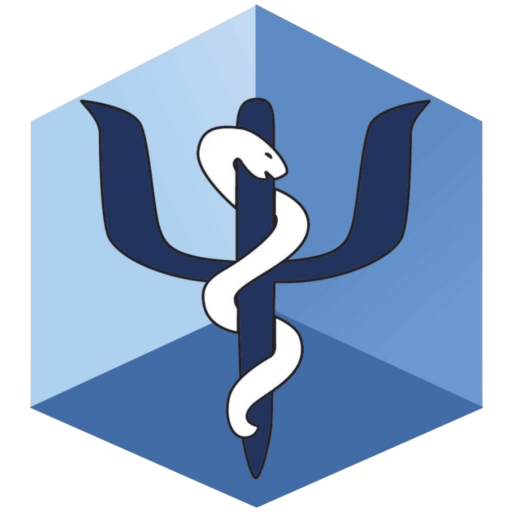Press Release – CYPSY19 Award Winners
At the International Association of CyberPsychology, Training & Rehabilitation’s (iACToR) 19th Annual CyberPsychology, CyberTherapy & Social Networking Conference (CYPSY19), awards are presented to pay tribute to individuals for their outstanding achievements. Past recipients include Professor Dr. Stephane Bouchard (2005), Professor Dr. Brenda K. Wiederhold (2006), Professor Dr. Giuseppe Riva (2007), Professor Dr. Cristina Botella (2008), Professor Dr. Hunter Hoffman (2009), Professor Dr. Sun I. Kim (2010) and Professor Dr. Mark D. Wiederhold (2011), Professor Dr. Mariano Alcaniz (2012) and Professor Richard M. Satava. (2013).
To celebrate more than a decade of exciting advances in cybertherapy as well as the growth of the CyberPsychology, CyberTherapy & Social Networking Conference itself, we are proud to announce Prof Andrea Gaggioli as the 10th Annual CyberTherapy Lifetime Achievement Award recipient. This award, the highest given by our community, has a tradition of honoring a person who has demonstrated outstanding lifetime achievements in the fields of advanced technologies and healthcare.
Prof. Gaggioli is Research Professor of General Psychology at the Catholic University of Milan, Italy; Senior Researcher of the Interactive Communication and Ergonomics of New Technologies – ICE-NET – Lab. at the Catholic University of Milan, Italy, and Deputy Head Researcher at the Applied Technology for Neuro-Psychology Laboratory – ATN-P Lab., Istituto Auxologico Italiano. For over ten years, Prof. Gaggioli has investigated the potential role of pervasive technologies in promoting mental and physical wellbeing. His involvement with those research areas has led to the co-authoring of over fifty articles in refereed journals, including these papers published in “Science”: (i) Gaggioli A., Riva G., Working the Crowd, Science. 2008 Sep 12;321(5895):1443; (ii) Gorini A, Gaggioli A, Riva G. Virtual Worlds, Real Healing. Science. 2007 Dec 7;318(5856):1549. For his scientific work, Prof. Gaggioli received several international acknowledgements, including the 2005 Annual Prize of the European Academy of Rehabilitation Medicine (http://www.aemr.eu/). In addition, he has recently completed coordinating the European Commission funded INTERSTRESS project (Interreality in the Management and Treatment of Stress-Related Disorders). This STREP project explored the potential of a new human-computer paradigm – “Interreality” – for the management of psychological stress.
The aim of the Clinical Cyberpsychology New Investigator Award is to reward the presentation of strong methodological studies at the CyberPsychology, CyberTherapy & Social Networking conference. This year we are delighted announce Dr. Fillipo La Pagaila as the conference award recipient. Dr. La Pagaila is an Italian psychologist who received his Ph.D. in Neuroscience and Behavioral Disorder at the University of Palermo with the experimental thesis on “Assessment of Executive Functions in Patients with Obsessive Compulsive Disorder by Virtual Reality.” Currently Dr. La Pagaila works at the Department of Experimental Biomedicine and Clinical Neuroscience, University of Palermo, Italy.
The main area of interest for Dr. La Pagaila is the application of Virtual Reality and media technologies within the clinical context. His current work includes the “Assessment of Executive Functions in Patients with Obsessive Compulsive Disorder by NeuroVirtual Reality and the “Cognitive Rehabilitation in Schizophrenic Patients by Virtual Reality”. In addition, since 2004 Dr. La Pagaila has been planning and conducting educational robotics laboratories in primary and secondary school which are aimed at the improvement of mathematical logical thought and problem-solving strategies.
Dr. La Pagaila is the author of several scientific papers published in the area of methods and psychology assessment tools and the use of virtual reality and the Internet in medicine and training. In 2013, La Paglia received “The 2013 Young Minds Research Award and since 2008, he has participated at each CYPSY conference.
To showcase outstanding achievements in a student poster submission to the CYPSY Conference, the Young Minds Research Awards, sponsored by Mary Ann Liebert, Inc. Publishers, are presented to those projects judged to have the greatest potential to contribute to the innovative field of cyberpsychology, cybertherapy, training, & rehabilitation.
We are proud to announce our two poster winners, Jonathan Shalom from Israel and the lab of Soledad Quero from Spain. Mr. Shalom is currently a Ph.D candidate from Ben-Gurion University in Israel and presented his work ‘Social Anxiety and Physiological Arousal in Computer Mediated vs. Face-to-Face CommPatients’. Soledad Quero and her students from the Universitat Jaume I in Spain presented two posters: Expectations and Satisfaction with Traditional CBT versus CBT supported by ICTs & An Online Self-Applied Program for Drug Use Prevention in Adolescents (PREVEN-TIC FORMATIVO): the Professionals’ Assessment.
Congratulations and thank you to the winners for their dedication and passion in moving CYPSY forward.
